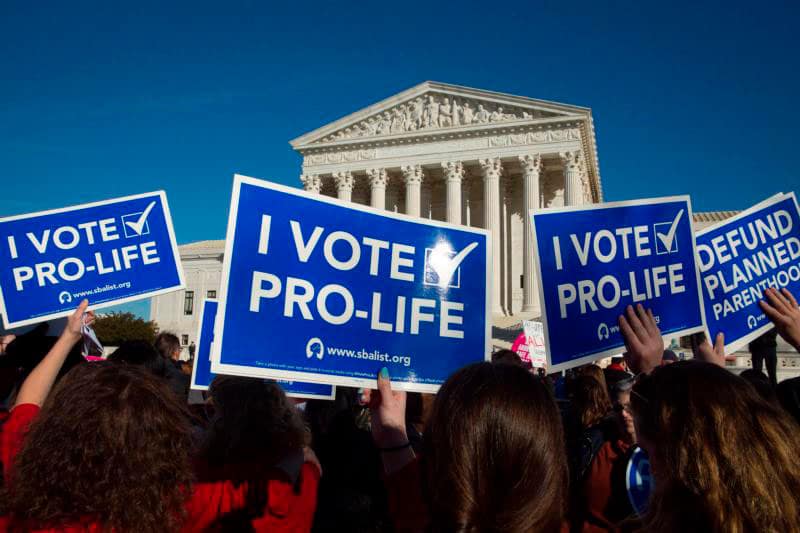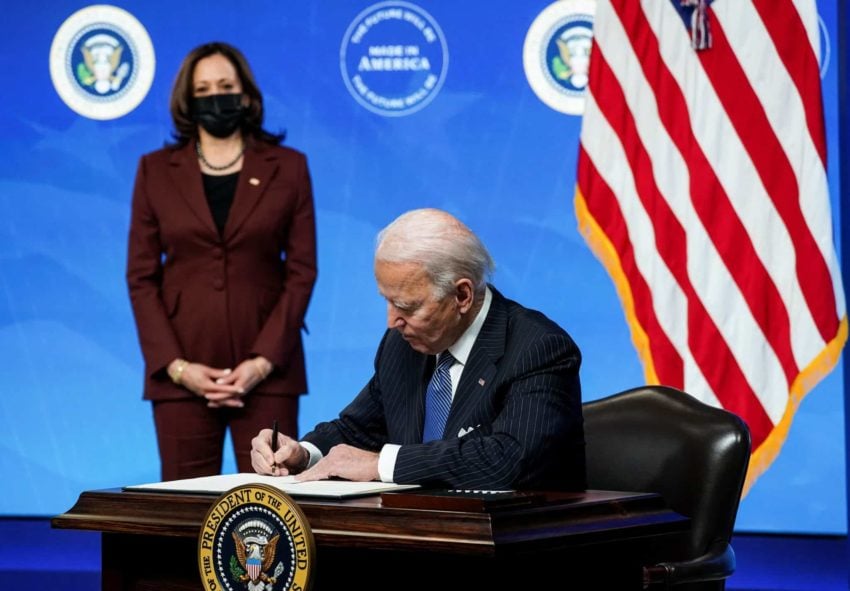
Dear Father, President Joe Biden of the US, who is a Catholic, has expressed publicly his support for abortion rights, yet he continues to go to Mass and receive Communion. I was surprised to hear this. Should he be allowed to receive Communion?
President Biden, as you say, is a Mass-going Catholic. He carries rosary beads, he made the sign of the cross after a public ceremony at the White House honouring the 500,000 Americans who had died from Covid-19, and he has a photo of Pope Francis behind his desk in the Oval Office.
Yet, by executive order, he has already reinstated funding for international abortion providers and he has expressed his commitment to codify into law the Roe versus Wade Supreme Court decision legalising abortion. Should he be allowed to receive Holy Communion?
The fact is he has been receiving Communion – at Holy Trinity Catholic Church, a few kilometres from the White House, with the support of the parish priest, Fr Kevin Gillespie, S.J. Fr Gillespie had checked this with the Archbishop of Washington, Cardinal Wilton Gregory, who agreed that Biden was welcome to receive Communion. Nonetheless, the parish has received over a hundred angry phone calls, letters and emails protesting the decision to allow it.
““Since the first century the Church has affirmed the moral evil of every procured abortion… Direct abortion … is gravely contrary to the moral law” (CCC 2271)
What is the official teaching of the Church on the matter? Canon 915 of the Code of Canon Law states: “Those … who obstinately persist in manifest grave sin, are not to be admitted to Holy Communion.” Can it be said that a person who expresses public support for abortion rights obstinately persists in manifest grave sin? Undoubtedly.
The Catechism of the Catholic Church teaches: “Since the first century the Church has affirmed the moral evil of every procured abortion… Direct abortion … is gravely contrary to the moral law” (CCC 2271).
Therefore, to contradict publicly a teaching as fundamental as this is clearly a grave sin. If the person is aware that they are contradicting Church teaching on so grave a matter, they cannot be admitted to Holy Communion. After all, reception of Communion implies that the person is fully in communion with the Church on all matters, including Church teaching.
What is more, to deny a fundamental teaching like that on abortion is really to fall into the sin of heresy, defined in the Catechism as “the obstinate post-baptismal denial of some truth which must be believed with divine and catholic faith” (CCC 2089; Can. 751).

If someone has been warned that what they are advocating is contrary to Church teaching and they obstinately persist in their belief, they are guilty of heresy. The penalty is severe – automatic excommunication by the law itself (cf. Can. 1364).
Since it is often not clear exactly who is guilty of heresy and who is not, the local bishop, after a proper investigation, may choose to declare publicly that the person is excommunicated. Whether the bishop considers this to be the best way to proceed, however, is another matter.
One approach the priest or bishop may take, after speaking personally with the person and warning him of the scandal he is causing, is to ask him not to present himself for Communion in any Masses in the parish or diocese.
This is not the same as excommunication, which prevents the person from receiving any sacrament in the Church until such time as the person repents and has been absolved of the excommunication.
“One approach the priest or bishop may take, after speaking personally with the person and warning him of the scandal he is causing, is to ask him not to present himself for Communion in any Masses in the parish or diocese.”
This approach was taken, for example, in 2008 by Archbishop Joseph Naumann of Kansas City against Kathleen Sebelius, Governor of Kansas, who had vetoed a bill passed by both houses of the state legislature greatly restricting access to abortion.
After speaking personally several times with Governor Sebelius about her action, the Archbishop asked Sebelius not to present herself for Holy Communion until such time as she amended her life and publicly repudiated her previous actions.
What action the authorities in Washington will take remains to be seen. Most likely they will do nothing.
But meanwhile many Catholics will remain confused when a President who has expressed views and acted contrary to Church teaching on such an important issue continues to be admitted to Communion.
Related articles:
